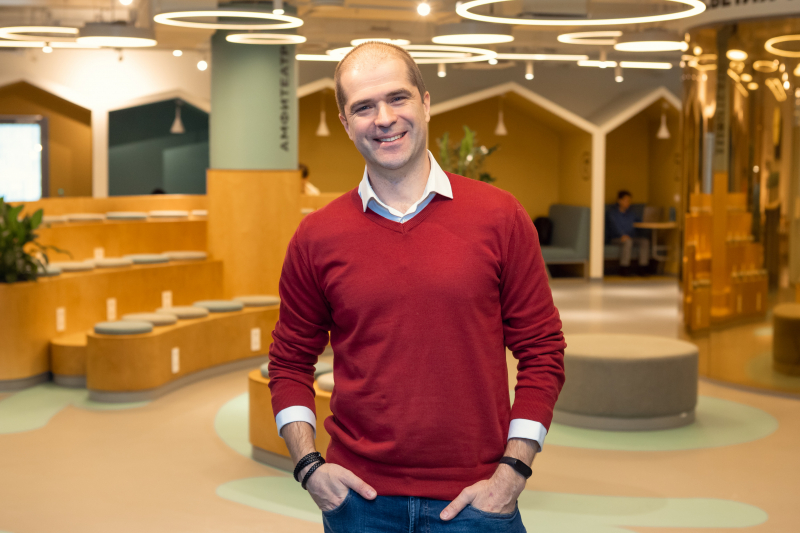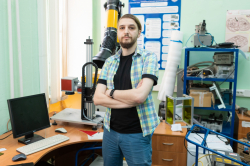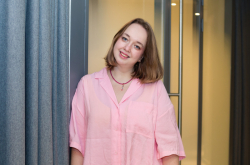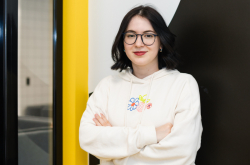When you were applying to the university, you chose a program for future engineers and teachers at ITMO’s Department of Natural Sciences. That is a rather singular choice, isn’t it? How did the training help you build your career?
Yes, we were a rather unique class because we got to graduate with various skills and approaches to organize our thinking under our belt. I’d say, the combination of engineering and pedagogy is quite organic. As a student, I started working on infrastructure projects in IT and still do that but I didn’t stop teaching. After getting my PhD at ITMO, I started to work here, as well.
Why did you decide to become a teacher?
I’ve recently asked myself this question and realized that I just love teaching, telling stories, and sharing new information, especially given the fact that our students tend to be highly motivated. They crave knowledge and have high expectations for their lecturers, that’s why this is a personal challenge for me. The best thing for me is to open new horizons for students, feel their gratitude, and see how their lives change. For example, some of them found a job in their subject area or asked me for advice when working on their projects.
When I had to teach a class for six groups for the first time at the beginning of my career and I saw the room crowded with students, I instantly felt like silently leaving. I was scared of presenting in front of over 120 people but then I pulled myself together and gave a good lecture. So, I think teaching is a calling. It’s an unusual job but I enjoy it a lot.
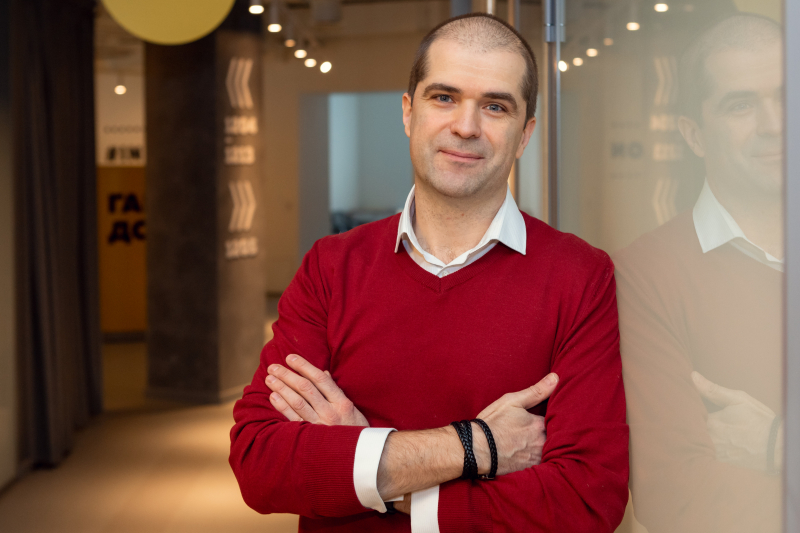
Artem Beresnev. Photo by Dmitry Grigoryev / ITMO.NEWS
During the pandemic, you taught students from both Russia and China. Did you notice any cultural differences when working with them?
My students from China were wonderful. Their culture is different from ours and Confucianism does come with a certain cachet. For instance, since they have other views on hierarchy and politeness, they show greater respect for their teachers. They’re also way more careful when working on their writing assignments. That’s why they have fewer problems when writing in a different language, though not speaking in it. Yet this can also have something to do with the language barrier they experience. Our students, on the other hand, are more free in their actions and communication.
You’ve said on your social media that seeing your students’ reactions to your jokes helped you a lot when you had to give online lectures. What else did you do to handle the change?
The switch to the new format wasn’t easy for me because I got used to having my classes in-person and seeing how my students react to what I say; and once we had to go online, it all came down to presentations and chats. Lecturers usually adjust their classes to their students and seeing their reactions, lecturers can understand whether they should repeat themselves or not. That’s why at first I really missed this feedback. I believe that educators can joke around a bit when explaining some topics, even the most complex ones, to make learning easier for students. And when you look at black squares on Zoom, it’s hard to even tell whether they smiled or not.
I’m glad I attended special workshops organized by the university to help us adapt to the new educational reality. I also watched other webinars on the topic and picked up some handy practices from them. For instance, now when I want to make sure that my students listen to me, I ask them to send “+” or “-” to our chat. The only thing I still can’t get used to are time delays. It takes a few minutes before I start to get messages from students. I’m sure that online classes can’t do without interactive tasks, and this is one way to go. Plus, you can use your camera to attract attention.
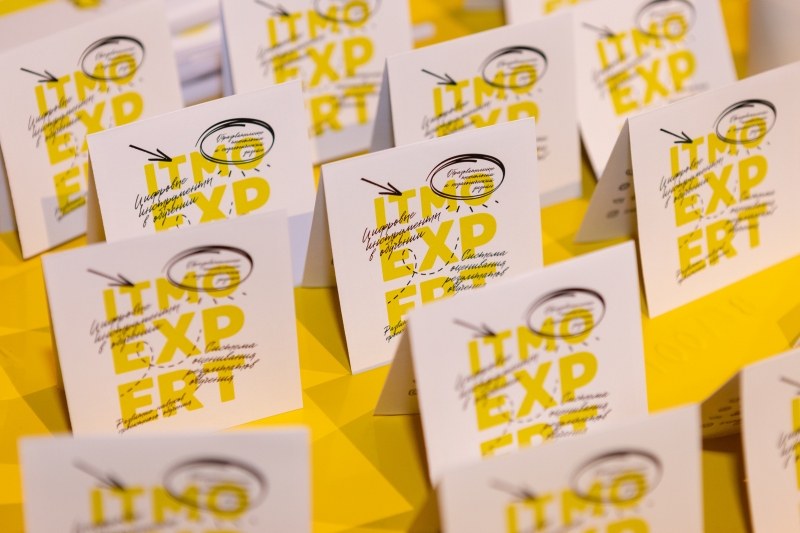
ITMO.Expert is the university’s platform where teachers can exchange their best educational practices. During the pandemic, the community launched ITMO.Distant to collect all the handy resources on online learning in one place. Photo by Dmitry Grigoryev / ITMO.NEWS
What other methods do you use to help your students understand the subject?
As I teach practice-oriented classes, I have to always link theory with practice. I also think that it’s important to use examples from different spheres, be it professional, personal, or daily life. I try to be less formal and even let myself use professional jargon in the classroom. Although I always use other terms, too, since we’re at the university. I don’t have one-on-one communications with my students. When it comes to class assignments, it feels wrong to choose one person in a large auditorium to do the task. If there are no volunteers, I either do something to encourage my students or complete the assignment myself.
How do you understand that your course was a success?
It’s a success when I have more people on my final lecture than on my first one. This is what an ideal course is like. For example, I make it my policy not to keep track of my students’ attendance because they should attend my classes for other reasons rather than just to meet some requirements. When they come to university to study, especially if they choose IT specializations, they should be passionate about what they do and understand why they do it. There’s this one saying that I love: “You can lead a horse to the water but you can't make it drink”. That’s why if we only strive for attendance, students will show up but they will do other things during class. But maybe they should spend their time differently and do something that will change their lives for the better?
I also often work with Master’s students. These are usually people who are already professionals and who understand how to manage their time. In this case, attendance is a great indicator. If you have the same or even a greater number of students in your class by the end of the course, it means that the students developed a taste for your subject, understood why they need it, acquired knowledge and skills, as well as developed professionally.
Apart from delivering courses on telecommunication systems and technologies, what else do you do at ITMO?
I’m working on the infrastructure of some of our major IT projects and in particular, I design computing infrastructure for olymp. It is an educational platform that, among other things, hosts national and international competitions in programming, physics, and mathematics for school students.
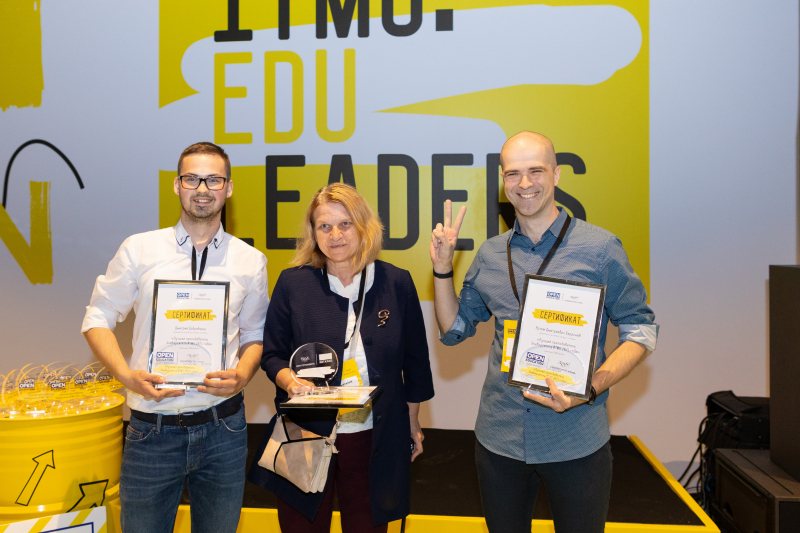
Artem Beresnev (right) with his colleagues at the ITMO.EduStars award ceremony in 2021. Photo by Dmitry Grigoryev / ITMO.NEWS
How do you feel about contests for educators like ITMO.EduStars?
I think they’re awesome! The fact that I won the contest gave me motivation to work even harder and of course, such competitions help teachers view their colleagues who they see every day as real professionals they can learn from. This contest brought together many lecturers and mentors from various faculties. Some of them received the award and it made me change the way I saw them before. I started to respect them even more.
On the other hand, such contests bring out our competitive nature and willingness to learn from others. There’s such a thing as professional burnout. It is something that might happen when you do the same tasks over and over again and thus lose any motivation. In a sense, teachers are just like farmers who work intensely from spring to fall and take breaks in between seasons. Once the new one comes, it’s all over again: farmers get new crops to produce and lecturers – new students to teach. Such contests are a great way to break this cycle and change your view on your job. During the contest, I got to learn from my colleagues. I picked up some useful practices, techniques, and tools.
Do you have any hobbies?
I love history. At the moment, I’m learning more about the Time of Troubles – a period in Russian history I knew little about, as it turned out. I’m into architecture and art, too. Especially I like early impressionism and the paintings of Diego Velázquez. I’m also interested in the history of boxing and enjoy watching old matches. Before, I did boxing myself but now I only watch.
